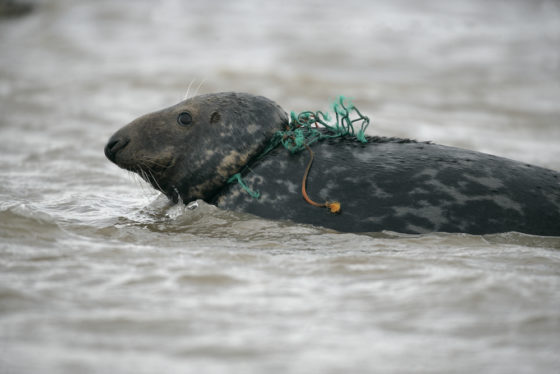More seals are becoming entangled in fishing nets: research


Experts at Dutch marine life sanctuaries are dealing with far more seals which have become entangled in waste, according to research published on Tuesday.
Up to 2018, vets were dealing with seven cases a year, but in 2019 and 2020, that figure soared to 38 and 37, the organisations said.
In 88% of cases, the waste wrapped around seals’ necks comes from the fishing and boating industry.
Grey seals are most likely to be victims, possibly because they are more curious than harbour seals, vet Anna Salazar-Casals told local broadcaster Omroep Brabant. ‘They are more likely to come into contact with fishing boats and therefore more likely to become entangled.’
Some 70% of the animals can be freed from the waste, but 20% cannot be reached and 10% are already dead.
‘Despite increased public awareness about the adverse environmental effects of marine debris, more initiatives and policies are needed to ensure the protection of the marine environment in the Netherlands,’ the researchers said.
Thank you for donating to DutchNews.nl.
We could not provide the Dutch News service, and keep it free of charge, without the generous support of our readers. Your donations allow us to report on issues you tell us matter, and provide you with a summary of the most important Dutch news each day.
Make a donation